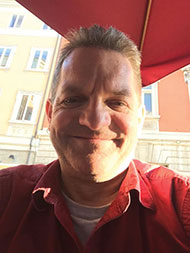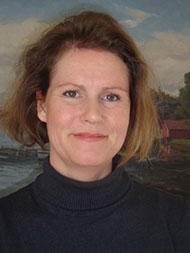Pensions: MCAA members’ perspectives

High-level research today relies on researchers moving between jobs and countries – the latter of which can lead to complications in terms of transferring a state pension and supplementary pension rights. We spoke to Daniel Praeg and Cristina Prytz about their concerns and expectations as mobile researchers.
Our Fellows

Daniel Praeg
Born in Canada / Swiss nationality
Host country and city: Nice, France
“In May 2016 I started a MSCA Global Fellowship, a three-year collaboration between geoscience institutes in Brazil (IPR-PUCRS, Porto Alegre) and France (Géoazur, Nice). Our project is called SEAGAS and concerns submarine gas hydrates, ice-like compounds that form in deep-sea sediments and which are thought to epresent the largest reserve of greenhouse gases (mainly methane) on Earth.
The scientific goal of SEAGAS is to better understand the nature of gas venting from such systems, by comparing study areas on the Mediterranean and Brazilian margins that have experienced differing forms of glacial-interglacial climate forcing.”

Cristina Prytz
From Sweden
Host country and city: Manchester, UK
“I am working on a research project called House and home: physical and emotional comfort in the country house, England and Sweden c. 1680- 1820.
The research focuses on the changing relationship between
physical and emotional comfort in the context of the country house, and explores a number of key questions about how the desire for comfort related to gender and life course, and to material objects and the growing specialisation of domestic spaces was perceived through different senses and how it was
juxtaposed with feelings of discomfort; and how it was conceived and experienced in two contrasting countries within Europe.”
International career paths
Like numerous researchers, Cristina and Daniel have worked in several countries.
Cristina had the opportunity to work in the United States and in Austria, for a few months.
Daniel’s has impressive international credentials, having worked in six different countries: “I began as a pre-doctoral researcher with the Geological Survey of Canada, first going to sea in 1984 to contribute to research programmes on the glacial history of the eastern and Arctic
offshore. An interest in glacial processes led me to a research PhD at the University of Edinburgh (1997). I thereafter spent several happy years in Ireland as a post-doctoral researcher with the Marine and Petroleum Geology Group at University College Dublin. In 2004, a Marie Curie fellowship took me to the Italian National Institute of Oceanography and Geophysics in Trieste, where I remained for 10 years as a Senior Researcher. I am now a Marie Skłodowska-Curie Global Fellow, which involves two years in Brazil (2016-2018) and a return year in France (2018-2019).”
Concerns
“I think that it will always be a problem to find the right kind of information when you do not follow the common employee-pattern.”
Our two Fellows admit to having some concerns over their future pension and lament the lack of information in this sector. “I think that it will always be a problem to find the right kind of information when you do not follow the common employee-pattern – when you are moving a lot or do not get funding the same way as most of your colleagues,” says Cristina.
She opted for a private pension plan, and explains: ”I am rather worried about my pension, I must say. The changes made to the pension-system all over Europe these last 15 years were necessary, I am sure, but I can’t say I am very optimistic about the future.”
“My pension will be issued by at least four different countries”
Daniel’s situation is clearly complex. “My pension will be issued by at least four different countries – Canada, Ireland, Italy and France. I wonder how much I might eventually receive, and how much time I will have to spend trying to understand the administrative procedures within the different countries in order to receive a part of my pension from each.”
Getting concrete information about the amount that a researcher with an international career will eventually receive is clearly complicated. Daniel tried to find out more from a government office in Italy, but they could only confirm that time spent abroad would affect his future pension: “I was advised to return in six months to see what the Italian legislation on pensions might be by then,” says Daniel.

Expectations
“Resaver sounds like a very good start, especially if employers accept it.”
Although our Fellows don’t seem to know a lot about the pan-European pension fund RESAVER and the web-portal FindYourPension, they are optimistic regarding the setting up of a pan-European pension fund. “Resaver sounds like a very good start, especially if employers accept it,” muses Cristina.
To Daniel, a means of estimating the overall due from several countries would be an improvement. “I would hope that a pan-European pension system would eventually include a way to integrate past and future pension contributions from multiple countries,” he concludes.